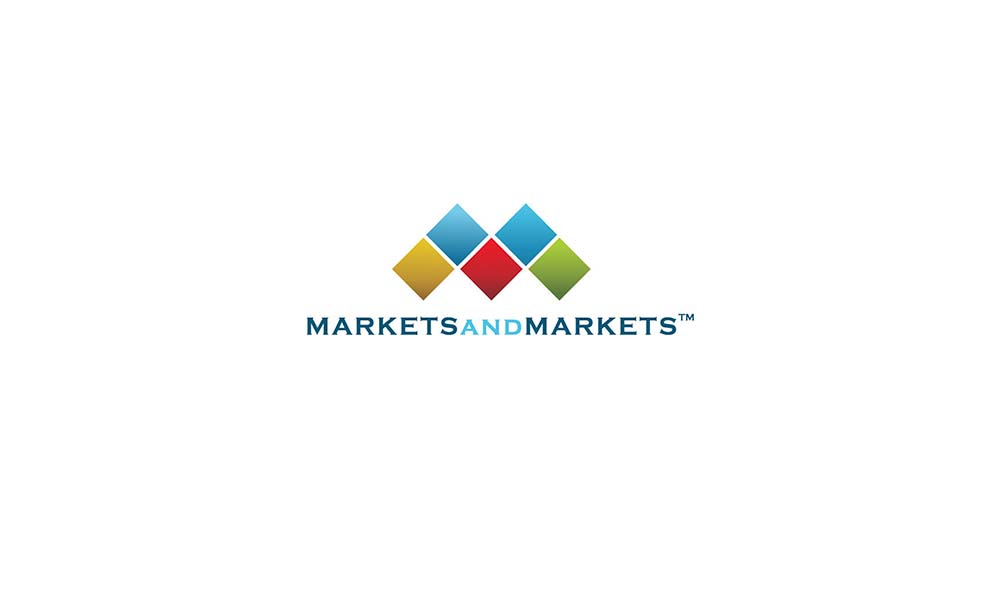The global Blockchain Interoperability Market size is projected to grow from USD 0.3 billion in 2023 to USD 1.0 billion by 2028 at a CAGR of 27.2% during the forecast period, according to a new report by MarketsandMarkets.
With growing standardisation, interconnected ecosystems, cross-industry acceptance, enhanced scalability, and integration with upcoming technologies, the market for blockchain interoperability has a lot of room to develop in the future. Interoperability will be embraced by institutions and governments for secure collaboration, and user-friendly tools and privacy protections will spur broader usage. In general, the future digital landscape will be decentralised and connected thanks to blockchain interoperability.
The global Blockchain Interoperability Market size is projected to grow from USD 0.3 billion in 2023 to USD 1.0 billion by 2028 at a CAGR of 27.2% during the forecast period, according to a new report by MarketsandMarkets™. The growth of the Blockchain Interoperability Market is driven by the demand for smooth communication and asset transfer among various blockchain networks, the increasing adoption of dApps, and the emergence of diverse blockchain ecosystems, creating a need for interoperability, enabling collaboration and access to a broader range of resources. Furthermore, regulatory compliance requirements and the desire for standardized frameworks contribute to the market’s expansion.
Based on the vertical segment, the healthcare vertical is to grow at the highest CAGR during the forecasted period.
The healthcare vertical experiences the highest CAGR in the Blockchain Interoperability Market due to the need for efficient data exchange among multiple stakeholders, including hospitals, clinics, insurers, and patients. Blockchain interoperability ensures secure and standardized communication, addressing fragmented healthcare records and improving access to comprehensive patient information. With its robust security features, blockchain technology enhances data protection and compliance with regulatory guidelines. Furthermore, blockchain-enabled innovations in patient consent management, clinical trials, supply chain transparency, and fraud prevention contribute to the growth of blockchain interoperability in the healthcare industry.
By Application, dApps holds the largest market size during the forecast period.
Due to their increasing popularity and demand, dApps have a large market size in the Blockchain Interoperability Market. As dApps become more widely used across various industries, the need for interoperability between different blockchain networks arises. Interoperability solutions allow dApps to communicate and interact with multiple blockchains, expanding their reach and usability. This cross-chain functionality enhances the user experience by enabling seamless asset transfers and data access. Moreover, the development of interoperability protocols further supports the growth of dApps in the Blockchain Interoperability Market. Thus, dApps currently dominate the market in terms of market size among applications in the Blockchain Interoperability Market.
By region, the Asia Pacific market is to grow at the highest CAGR during the forecast period.
The Asia Pacific region demonstrates solid technological adoption, with countries like China, South Korea, Japan, and Singapore at the forefront of blockchain research and development. Additionally, government support is crucial, as policymakers have implemented favorable regulations and initiatives to encourage blockchain adoption. The presence of significant developments, such as the Interledger Protocol (ILP) and initiatives like the Asia Pacific Blockchain Alliance (APBA) and the ASEAN Blockchain Initiative, further promote blockchain interoperability. These efforts create an environment that fosters collaboration, innovation, and shared standards. As a result, the Asia Pacific region is positioned to leverage the benefits of blockchain interoperability, driving its remarkable growth in the market. Thus, Asia Pacific has the highest CAGR in the Blockchain Interoperability Market.
Top Key Companies in Blockchain Interoperability Market:
Oracle (US), R3 (US), GAVS Technologies (US), LeewayHertz (US), Ontology (Singapore), Inery (Singapore), Fusion Foundation (Singapore), Quant Network (UK), Band Protocol (Thailand), LiquidApps (Israel), LI.FI (Germany), Biconomy (Singapore), Datachain (Japan), RioDeFi (China), Polyhedra Networks (Italy), SupraOracles (US), Orb Labs (US), and ChainPort (Israel) are the key players, and other players in the Blockchain Interoperability Market.
Recent Developments
- In January 2023, Oracle (US) enhanced its Oracle Blockchain Platform, introducing new capabilities to support interoperability and improve blockchain solution development. Its key features include OAuth 2.0 support for secure callback delivery, expanded web3 API support, Ethereum interoperability for atomic transactions, extended tokenization SDKs for advanced tokenization solutions, and TTF-based tokenization support for exchange across different fungible tokens.
- In February 2022, LeewayHertz partnered with XDC Network (US) to advance blockchain solutions for global trade and finance. Their collaboration aims to enhance the XDC Network ecosystem and address scalability and sustainability challenges in the blockchain industry. While the partnership’s primary focus is on developing decentralized and scalable solutions, such as SDKs and upcoming projects like the XDC NFT dApp and XDC Explorer, their joint efforts also hint at the potential for blockchain interoperability.
- In January 2022, Ontology introduced the Ethereum Virtual Machine (EVM), allowing EVM-centric developers to construct decentralized applications on its blockchain platform. The Ontology EVM reduces migration costs, lowers gas fees, and offers faster block production. Developers can leverage the ONTO Wallet and ONT ID for broader adoption.
- In October 2021, R3 (US) acquired Ivno (UK) to enhance blockchain interoperability. Ivno’s platform enables rapid tokenization of assets and compliant, secure transactions. Integrating Ivno’s capabilities strengthens R3’s ability to optimize balance sheet management and explore stablecoin models using blockchain technology.
- In October 2021, Inery (Singapore) enhanced its decentralized storage and database solution, which integrates blockchain technology with distributed database properties, potentially contributing to blockchain interoperability. With a focus on data decentralization, security, and reducing breaches, Inery offers a relevant solution for decentralized data management.
For detailed information about the report:
https://www.marketsandmarkets.com/Market-Reports/blockchain-interoperability-market-25113202.html



